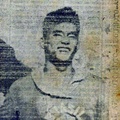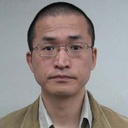
Masayuki Fukasawa
@masayukifukasawaBorn on November 22, 1965, in Numazu City, Shizuoka Prefecture, Japan. In 1992, he went to Brazil for the first time and worked as an intern at Paulista Shimbun (Japanese newspaper in Brazil). In 1995, he went back to Japan and worked with Brazilians at a factory in Oizumi-machi, Gunma Prefecture. He wrote a book, Parallel World (Ushio Publishing) about his experiences there and received Ushio Nonfiction Award in 1999. He returned to Brazil in 1999. Beginning in 2001, he worked at Nikkey Shimbun and became the editor-in-chief in 2004. He has been an editor-in-chief of Diário Brasil Nippou since 2022.
Updated January 2022
Stories from This Author
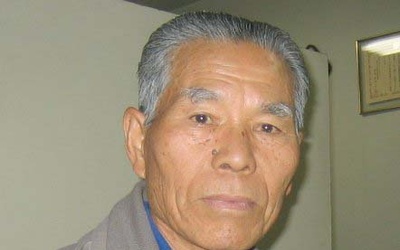
The deep relationship between postwar immigration and war in Brazil as seen through personal histories
July 26, 2021 • Masayuki Fukasawa
Brazil, which currently boasts the world's largest Japanese community at 2 million, also began with 250,000 Japanese immigrants, about 50,000 of whom were postwar immigrants. The biggest characteristic of the postwar generation is that there are many "war veterans" and "former Manchurian immigrants or people born in Manchuria." There have been no surveys, so the actual numbers are unknown, but this is my impression from 25 years as a Japanese newspaper reporter. Half of the postwar immigrants returned to Japan …
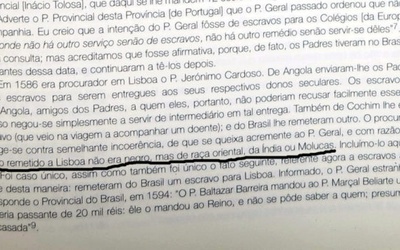
Japanese slaves and Jews who came to South America in the 16th century - Part 2
Feb. 4, 2021 • Masayuki Fukasawa
Read Part 1 >> The owner of the Asian Japanese youth is also a New Christian. Looking back, it is highly likely that the owner of the young Japanese man who was sold as a slave in Argentina in 1596, the subject of my column "Uncovering the Mystery of Japanese Slaves," was also a "New Christian." Tetsuzo Oshiro, an Argentine immigrant who was the first to write in detail about this case, wrote in his book "Córdoba" that "there is …
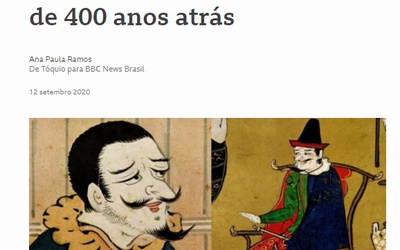
Japanese slaves and Jews who came to South America in the 16th century - Part 1
Feb. 3, 2021 • Masayuki Fukasawa
A sensational article ran on BBC Brazil. The article is in Portuguese and is titled " The History of Japanese Slaves Sold Around the World by the Portuguese 400 Years Ago " (September 12th, by Ana Paula Ramos). It was based on an interview with Associate Professor Lucio de Souza of Tokyo University of Foreign Studies and Associate Professor Mihoko Oka of the Historiographical Institute of the University of Tokyo. The book begins with the words, "In 1585, an eight-year-old …
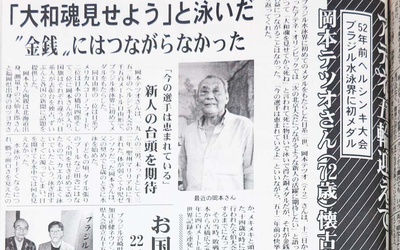
Part 6: Children of immigrants make national contributions
July 27, 2020 • Masayuki Fukasawa
Read Part 5 >> To celebrate Okamoto's great achievement, a victory celebration called the "Kappa Festival" was held in his hometown of Marilia on September 28, 1952. Three cows were roasted and a grand churrasco party was held, inviting 1,000 people. According to a report on the event in the Paulista Newspaper dated October 2, 1952, Okamoto's father, Sentaro, was in high spirits throughout the event, saying, "When I started swimming, I trained myself in my Kankai-ryu style (one of …
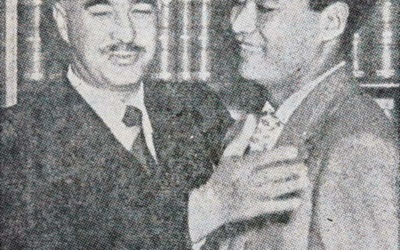
Part 5: How a flying fish changed Okamoto’s fate
July 20, 2020 • Masayuki Fukasawa
Read Part 4 >> In the documentary film "O nadador – A história de Tetsuo Okamoto" (hereafter abbreviated as "Swimming Athlete", 2014, 26 minutes, Portuguese, directed by Rodrigo Gullotta), which summarizes Okamoto's achievements and personality, his sister Suzue says that her brother's personality was "very modest and not very sociable. He was more devoted to sports than to studying." This personality may have been a factor in why he was not well known in the colonia. Toninho Neto, a childhood …
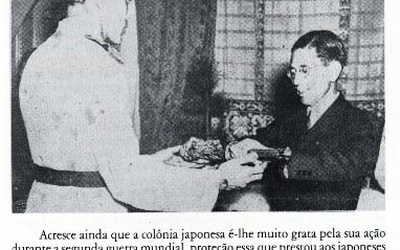
Part 4: Anti-Vargasist sports promotion policies
July 13, 2020 • Masayuki Fukasawa
Read Part 3 >> A surprising connection from before the war Research revealed that Padilha had indeed been working at the Sports Bureau since before the war. He was highly trusted by Adhemar Barros, who was appointed Consul General of São Paulo State (1938-41) by the Vargas dictatorship, and he began construction of the Baby Baglioni Sports Complex in the Agua Branca district of São Paulo, and the Ibirapuera Sports Complex Constantino Vaz Guimarães. The former is still used as …
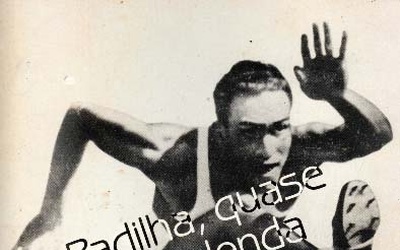
Part 3: The unsung hero, Director Padilha
July 6, 2020 • Masayuki Fukasawa
Read Part 2 >> The Director of the São Paulo State Sports Bureau who gave permission to fly the Japanese flag at the Pacaembu swimming pool was Mr. Padilha, the same man who had given special permission for the Japanese to use the pool during the war. The March 28, 1950 edition of the Paulista newspaper carried a comment by Director Padilha, which read, "Never before has a foreign athlete participated in this tournament. We are extremely pleased that we …
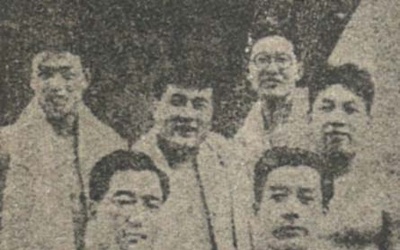
Part 2: A ray of hope in the midst of hardship for Japanese immigrants
June 29, 2020 • Masayuki Fukasawa
Read Part 1 >> At the US-led Pan-American Conference of Foreign Ministers held in Rio in January 1942, ten South American countries, excluding Argentina, resolved to sever economic relations with the Axis powers, and on the 29th of the same month, the Brazilian government also declared the severance of diplomatic relations with the Axis powers. As part of its crackdown on "enemy nationals," the São Paulo State Security Bureau imposed restrictions on Japanese immigrants, such as "prohibiting the distribution of …
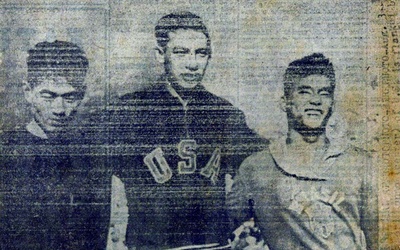
First medal in swimming at the 1st Helsinki Olympics
June 22, 2020 • Masayuki Fukasawa
Nisei swimmer Tetsuo Okamoto (born 1932 - died 2007) brought the first Olympic medal to both Brazilian swimming and the Japanese community. He reached third place on the podium on August 3, 1952, in the 1500m freestyle at the Helsinki Olympics (Finland). What's more, three swimmers of Japanese descent made up the podium at that time. At the time, Japanese newspapers focused on the good performance of the Japanese swimmers at the Olympics. However, despite the lingering aftertaste of the …
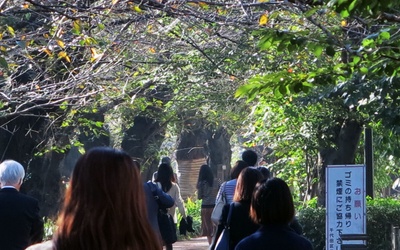
The Feelings of a Japanese Person Who Became a Foreigner: A Long, Endless Journey - Part 2
May 20, 2020 • Masayuki Fukasawa
Read Part 1 >> Can someone be trusted as a Japanese person just because they have Japanese citizenship? As I was reading the comments section of the journalist's column "Brazilians in Japan should also be given 100,000 yen, " I noticed that many people were lumping together permanent residents and short-term visitors when it came to foreigners in Japan, and that there were strong preconceived notions about nationality. For example, something like this: "I mean, foreigners have foreign nationality, which …
 We’re looking for stories like yours!
Submit your article, essay, fiction, or poetry to be included in our archive of global Nikkei stories.
Learn More
We’re looking for stories like yours!
Submit your article, essay, fiction, or poetry to be included in our archive of global Nikkei stories.
Learn More
New Site Design
See exciting new changes to Discover Nikkei. Find out what’s new and what’s coming soon! Learn More
Discover Nikkei Updates



See exciting new changes to Discover Nikkei. Find out what’s new and what’s coming soon!




